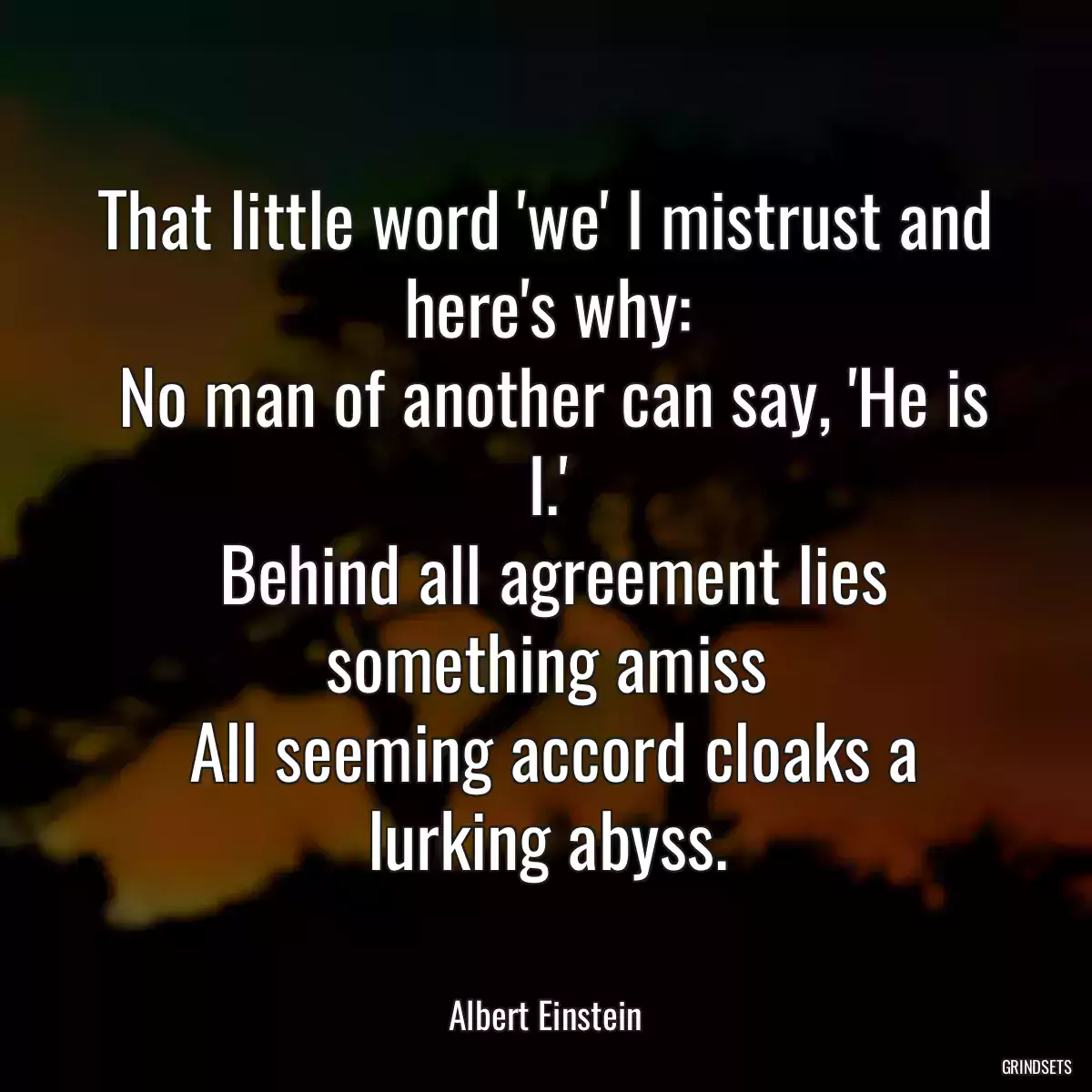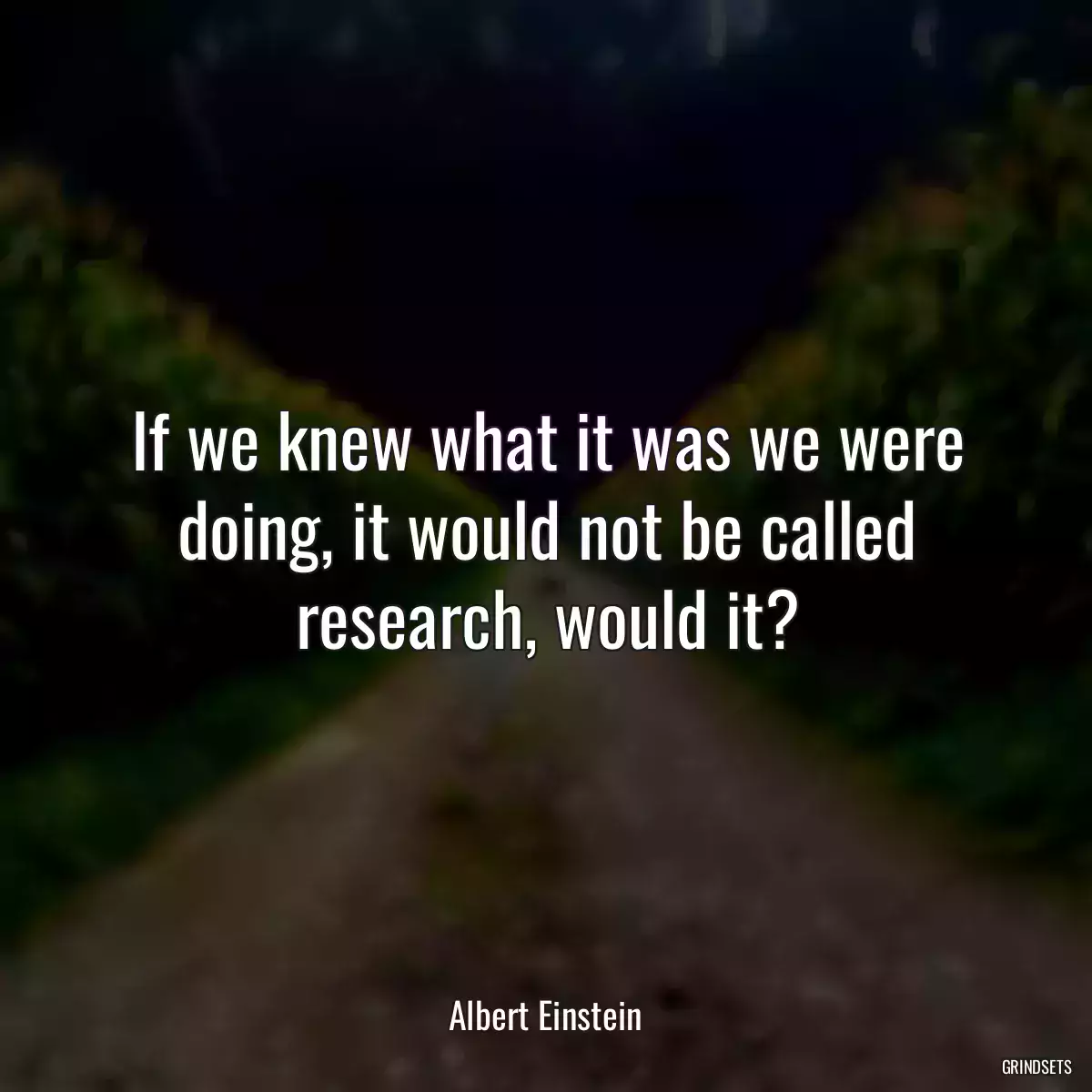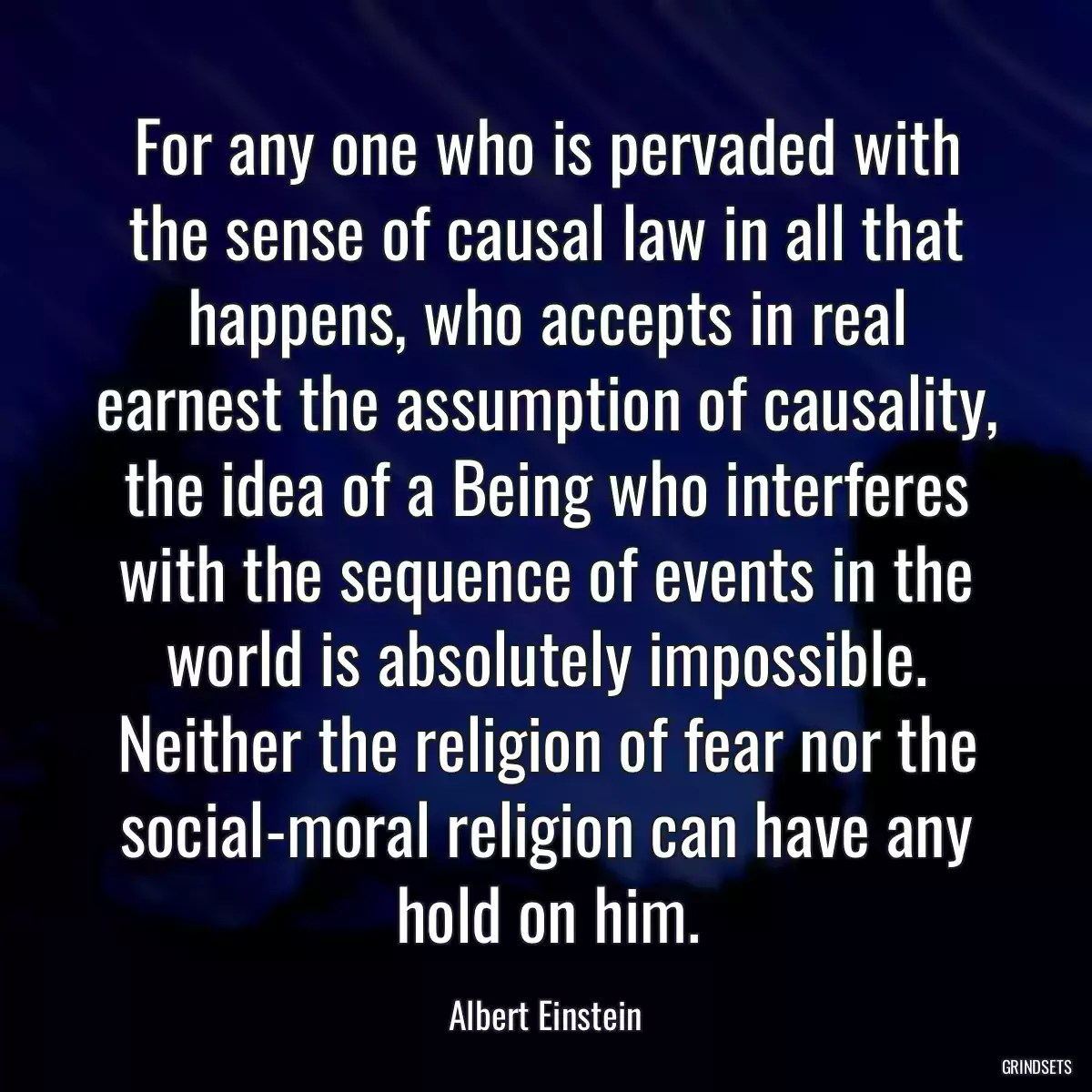
Quotes Albert Einstein - page 8
Find dozens of Albert Einstein with images to copy and share.

The work on satisfactory formulation of technical patents was a true blessing for me. It compelled me to be many-sided in thought, and also offered important stimulation for thought about physics. Following a practical profession is a blessing for people of my type. Because the academic career puts a young person in a sort of compulsory situation to produce scientific papers in impressive quantity, a temptation to superficiality arises that only strong characters are able to resist.
Academic chairs are many, but wise and noble teachers are few; lecture-rooms are numerous and large, but the number of young people who genuinely thirst after truth and justice is small
I never think of the future. It comes soon enough. When visiting the U.S. from Germany for a winter academic stay.
You may also like
The Prussian Academy of Sciences is a fast-track academic institute that requires a proactive, hands-on-type individual to overthrow the Newtonian conception of the universe. The successful candidate will have an excellent command of mass, energy, space, time and some maths. Bonus paid upon completion of proofs
Numerous are the academic professors, but rare are wise and noble teachers.
By academic freedom I understand the right to search for truth and to publish and teach what one holds to be true. This right implies also a duty: one must not conceal any part of what on has recognized to be true. It is evident that any restriction on academic freedom acts in such a way as to hamper the dissemination of knowledge among the people and thereby impedes national judgment and action.
A scientist is a mimosa when he himself has made a mistake, and a roaring lion when he discovers a mistake of others.
Hell! there ain't no rules around here! We are tryin' to accomplish somep'n!

One must not attempt to justify them, but rather to sense their nature simply and clearly.
Albert is a very poor student. He is mentally slow, unsociable and is always daydreaming. He is spoiling it for the rest of the class. It would be in the best interests of all if he were removed from school immediately.
We must recognize what in our accepted tradition is damaging to our fate and dignity-and shape our lives accordingly.
Matter is real to my senses, but they aren't trustworthy. If Galileo or Copernicus had accepted what they saw, they would never have discovered the movement of the earth and planets.
Almost all the other fellows do not look from the facts to the theory but from the theory to the facts; they cannot get out of the network of already accepted concepts; instead, comically, they only wriggle about inside.
Once we accept our limits, we go beyond them.
Concepts which have proved useful for ordering things easily assume so great an authority over us, that we forget their terrestrial origin and accept them as unalterable facts. They then become labeled as 'conceptual necessities,' etc. The road of scientific progress is frequently blocked for long periods by such errors.
There will come a point in everyone's life , however, where only intuition can make the leap ahead, without ever knowing precisely how. One can never know why but one must accept intuition as a fact.
You may also like

For any one who is pervaded with the sense of causal law in all that happens, who accepts in real earnest the assumption of causality, the idea of a Being who interferes with the sequence of events in the world is absolutely impossible. Neither the religion of fear nor the social-moral religion can have any hold on him.
Concepts that have proven useful in ordering things easily achieve such authority over us that we forget their earthly origins and accept them as unalterable givens.